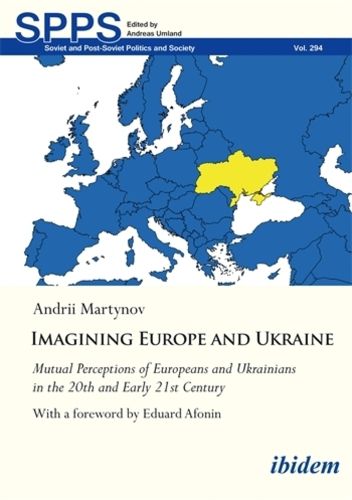Readings Newsletter
Become a Readings Member to make your shopping experience even easier.
Sign in or sign up for free!
You’re not far away from qualifying for FREE standard shipping within Australia
You’ve qualified for FREE standard shipping within Australia
The cart is loading…






In this compelling monograph, Andrii Martynov traces the evolution of the mutual images that Ukraine and Europe had and have of each other. This historical journey examines how these perceptions were shaped by mass media - from the press and broadcasting in the early 20th century to today's multimedia landscape. The narrative unveils how wars, ideological battles, and the Iron Curtain distorted these imaginations, while the advent of social media has accelerated transnational communication. Martynov explores how images transformed across generations and highlights the role of everyday life and mentality in shaping European identity. The book's analysis vividly depicts how "image wars" reflect deeper psychological and historical conflicts. For Ukrainians, European integration intertwines with the realities of war, challenging the notion of Europe as a peaceful haven. Martynov's work is both a methodological toolkit and a subjective vision, offering readers a nuanced understanding of how complex images have been routinized into social practices, and are perceived as norms in modern Ukraine and Europe.
$9.00 standard shipping within Australia
FREE standard shipping within Australia for orders over $100.00
Express & International shipping calculated at checkout
In this compelling monograph, Andrii Martynov traces the evolution of the mutual images that Ukraine and Europe had and have of each other. This historical journey examines how these perceptions were shaped by mass media - from the press and broadcasting in the early 20th century to today's multimedia landscape. The narrative unveils how wars, ideological battles, and the Iron Curtain distorted these imaginations, while the advent of social media has accelerated transnational communication. Martynov explores how images transformed across generations and highlights the role of everyday life and mentality in shaping European identity. The book's analysis vividly depicts how "image wars" reflect deeper psychological and historical conflicts. For Ukrainians, European integration intertwines with the realities of war, challenging the notion of Europe as a peaceful haven. Martynov's work is both a methodological toolkit and a subjective vision, offering readers a nuanced understanding of how complex images have been routinized into social practices, and are perceived as norms in modern Ukraine and Europe.